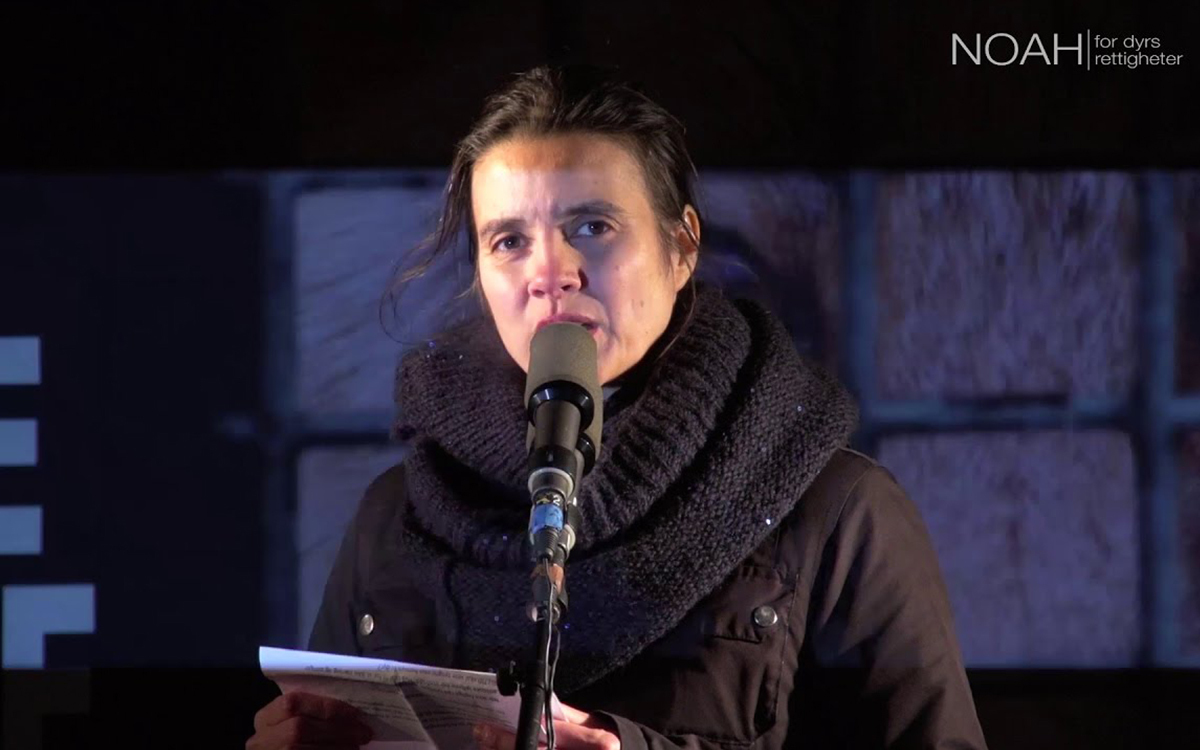

2015: A turning point in Norway in the realization of the importance of the Link
Link-related initiatives are now emerging throughout Europe. This is the case in Norway as of 2015: Siri Martinsen, veterinarian and director of NOAH – for animal rights gives us her testimony.
In Norway, until 2015, the link between violence against animals and humans was not well known or acknowledged.
In 2015, political leaders launched a pioneering project by creating an “animal crime unit” consisting of a small group of police officers in a specific district. This unit was supposed to deal with cases of animal abuse and violence and to find the best way to collaborate with the Food Agency (agency also responsible for the control of animal welfare). In addition, a national cooperation agreement between the Food Agency and the police was to be set up. The special police service dealing with environmental crimes and offenses should also specialize in crimes against animals, as part of an increase in police skills.
The breakthrough achieved in 2015 was preceded by a campaign lead by NOAH for an “animal police” in Norway, recalling that the police almost never acted on any offence or crime against animals; and that when the authorities reacted to violence against animals, even for serious offenses, the sanction rarely went beyond a small fine or a sentence of two weeks to two months in prison (often conditional). Although the destruction of inert goods (fences, bicycles, etc.) was often sanctioned more severely. This was the case even though the animal protection law provided for a one-year sentence for the first offense and a three-year sentence for recidivism and serious offenses.
The NOAH campaign has achieved remarkable public support, and researchers have also begun to take a greater interest in it. NOAH organized a demonstration with the presence of well-known researchers who delivered speeches in parliament.
After that, the political party FrP organized a seminar inside the parliament with the same good speakers. In-depth political work has finally resulted in a majority in favour of the creation of an animal police unit in Norway, thus recognizing the need to take crime and crime against animals more seriously.
«Awareness of the link between violence on animals and violence against humans has been an important part of this process. The police themselves have also admitted that previously this type of offense had not been satisfactorily addressed.»Siri Martinsen, veterinarian and director of NOAH – for animal rights
As this project is initiated, the police and the Food Agency organize annual seminars to improve the quality of their work. The Food Agency itself has also gradually recognized the need for the police to intervene more in case of serious animal abuse. The number of cases of animal abuse being the subject of a legal response has increased, and the level of punishment has been increased for serious cases. However, the maximum sentence of three years has never been applied, although there have been several serious cases including severe suffering for a significant number of animals. After 2015, public awareness of the importance of filing a complaint with the police against animal abuse has increased. Policymakers realized that more units were needed to combat animal crime, and in 2018 five units were operational or in the process of being operational.
In February 2018, a new coalition government issued a platform in which it promised to establish animal crime units in all police districts in Norway. In recent years, researchers specializing in the study of violence and criminology have been interested in the link between violence against humans and violence against animals.
There is also a growing interest in this area from institutions that train police personnel and those who train veterinarians. Much remains to be done in the area of cooperation between agencies dealing with human victims and those dealing with animal abuse. Currently, (in 2018), there are no lines of cooperation allowing the discovery of human victims in a situation of animal abuse, nor of animal victims in a situation of domestic violence. However, the first unit set up to deal with animal crime has indicated that its interventions in cases of animal abuse have also allowed it to uncover cases in which human victims needed help.